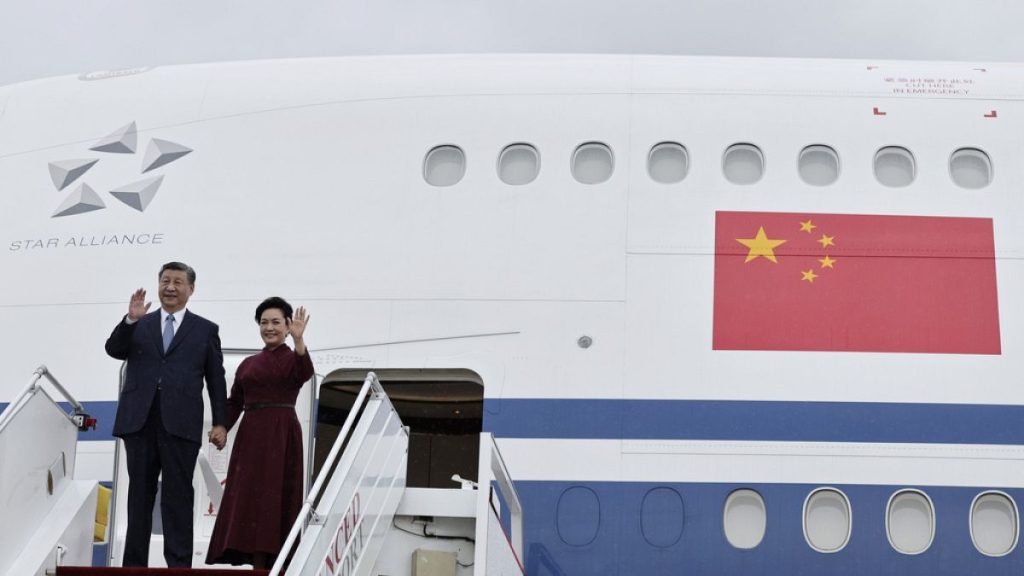Chinese President Xi Jinping embarked on a Europe trip amidst global tensions to discuss various economic and strategic issues. Beginning his tour in France, celebrating the 60th anniversary of Franco-Chinese diplomatic relations, Xi Jinping will also visit Serbia and Hungary. One of the key issues to be addressed is the war in Ukraine, with France hoping to leverage China’s partnership with Russia to help resolve the conflict. Despite officially claiming neutrality, China has not condemned Russia’s invasion of Ukraine, and trade between Russia and China has helped Moscow mitigate the effects of economic sanctions. The European leaders will aim to signal readiness to sanction Chinese companies supporting Moscow’s war effort.
Trade policy debates will take center stage during Xi Jinping’s visit, as efforts are made to improve access for French and European companies to the Chinese market. The EU’s trade deficit with China decreased in 2023, but concerns persist about imbalances, particularly in the green technology sector. The European Commission has launched investigations into Chinese subsidies distorting competition in sectors such as electric cars and solar panels. While Macron’s messages about Chinese support for Russia and unfair trade practices may not immediately impact Beijing’s behavior, efforts to address these issues will be a focus of discussions during the trip.
Continuing his tour in Hungary and Serbia, seen as closer to Moscow, Xi Jinping aims to strengthen ties and cooperation. These two countries are viewed as gateways to China’s Road and Belt Initiative in Europe. Projects like the reconstruction of a railway line between Budapest and Belgrade, financed by China, are significant in enhancing economic ties between the countries. However, the visit also coincides with the 25th anniversary of the NATO bombing of the Chinese embassy in Belgrade, an event that may influence perceptions of international relations and alliances. Xi Jinping’s visit to these countries serves to showcase China’s commitment to establishing an authoritarian axis in international politics.
The visit to Hungary and Serbia highlights the growing economic relations and investments between Beijing and these countries. China’s involvement in projects like electric vehicle battery factories in Hungary demonstrates the depth of economic cooperation. The visit will also be an opportunity to shape narratives that contrast Western actions with China’s purported commitment to peace, dialogue, and diplomacy. Building on these economic ties, Xi Jinping’s visit to Hungary and Serbia will further solidify China’s position in the region and advance its strategic interests. The trip marks Xi Jinping’s first European State visit since the COVID-19 pandemic, showcasing China’s continued engagement in international affairs despite ongoing global tensions.













